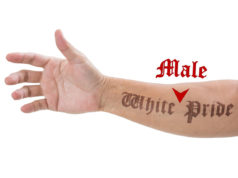So, I’m sitting in a Port Lavaca hotel room on a weekday evening, thinking about winding down. It’s been a long drive from Fort Worth, and traffic has been a beating. But then I open the roller-shade on the only window in my room and see it.
No, not the ocean, though I see that, too.
It’s the Shellfish.

Photo by E.R. Bills
And, no, not a shellfish. The Shellfish. The Port Lavaca restaurant. It looks closed down, and I don’t immediately recall why I know the place.
I’m in Port Lavaca to do some research for a new book. I wouldn’t say it’s been an all-consuming process of late, but spotting the Shellfish sidetracks me.
Then, I remember. I realize where I am.
I’ve written a lot about some pretty dark stuff. Massacres, murders, lynchings, rapes, genocide, ecocide, disappearances, expulsions, and cataclysms. It would be unfair to say the stuff doesn’t leave an impression on you or, in this case, me, but if you do it long enough, you can lose track. You care about the victims and the people in the stories, or cases or history you’re researching, but when enough of it piles up in your memory, you can slip.
I slipped.
I got invited to a history festival in Houston that Saturday and decided I’d kill two or three birds with one stone (a horrible metaphor in the end). In Port Lavaca, I visited the site of the old port city of Indianola, the victim of two late 19th-century cataclysms. I’m focused on the subject matter at hand and not paying attention to other details. For instance, I didn’t notice that my hotel was located right before the Port Lavaca causeway. And I also didn’t realize my hotel sat between the causeway and the Shellfish.
Forty-three years ago, on the morning of April 1, 1981, a 24-year-old woman named Kathryn Elizabeth Collins disappeared in front of the Shellfish restaurant just off the Port Lavaca causeway. A tire on her brown 1974 Chevy Caprice had gone flat. She attempted to change it but didn’t have a jack. A couple stopped to help, but they didn’t have a jack, either, so they left to borrow one. At approximately 8:45 a.m., a tan van pulled up. Multiple witnesses saw a man stepping out of the van and offering to help. Kathryn apparently joined him for a ride, but the tire on the Caprice never got fixed, and Kathryn Collins was never heard from or seen again.
In Texas Oblivion: Mysterious Disappearances, Escapes and Cover-Ups in 2021, I devoted a chapter to her and another young lady who had disappeared in the area just three years earlier. Kirkus Reviews called my book “authoritative and well-researched,” and Texas Books in Review had high praise for the collection, calling me “a voice for the forgotten.”
All well and good then, but now I don’t feel authoritative or reliably vocal. I feel mute and amnesic. I am embarrassed and a little ashamed.
Sometimes I forget I’m a tourist with a typewriter — sorry, a “keyboard.”
We try to get the stories right. We try to tell the truth. We try to be mindful of the victims and their families and maybe help them find some closure. Maybe even help them find answers.
But then we’re on to the next story. The next disappearance. The next murder. The next cataclysm.
There are so, so many in Texas. And so many Texans are hurting. But we’re not real keen on remembering, these days. Especially on Opening Day.
While I was staring out my hotel window at the spot where Kathryn Elizabeth Collins disappeared, most folks back home were watching the reigning World Series champion Texas Rangers (or, down here, the Houston Astros) play baseball.
And a week from the anniversary of the day Collins disappeared was eclipsed in my memory by another story, that we’d be witnessing an actual solar eclipse — between meaningless sports spectacles and the reporting of well-meaning but forgetful journalists.
In late 1984, infamous serial killer Henry Lee Lucas was interviewed regarding a number of cases in Victoria County, Calhoun County, and surrounding counties, but the dates he said he was in the area didn’t correspond with Collins’ disappearance. In 1991, investigators looked at serial killer Donald Leroy Evans regarding the incident, but no connection was ever established.
I talked to employees at the hotel where I was staying, and they’d never heard of Kathryn Collins. They had to look it up on their phones. They were surprised. And so were some older locals I visited with at the Calhoun County Museum in Port Lavaca. They didn’t remember the disappearance, either. They had never even heard of it.
It was sad, but my lapse of memory was worse, especially in a year that will later mark the 50th anniversary of the disappearance of three girls at a Fort Worth mall, a complete and utter vanishing that for a while kept people away from the place that’s now La Gran Plaza.
I have a daughter about the age Collins was when she went missing. I can’t help but be a little uneasy about my daughter driving alone, especially at night, but Collins was taken in the daytime. She was 5’5”, brown hair, brown eyes, petite. She had a young son and a boyfriend. Her son eventually went to live with her boyfriend’s family.
As another National Women’s History Month passes, I think about all that women have endured in Texas. I marvel at all their incredible contributions, and then I think about how many women I know who are talking about leaving Texas because they don’t feel safe. And I understand.
I am discomfited by the creepy, unconscionable chauvinism reemerging in Texas politics, essentially reinforcing the objectification and subjugation of women at the same time.

The Texas legislature is much scarier than one guy in a tan van — if he got you pregnant and let you live, the state lege would make you keep the fruit of his brutality. And if you tried to abort it, you could be sued by Christian activists or thrown in jail.
Will the current abortion of female autonomy in Texas be forgotten?
Will future Texans even remember it existed?
E.R. Bills is the author of Letters from Texas, 2021-2023 and Tell-Tale Texas: Investigations in Infamous History.
This column reflects the opinions of the editorial board and not the Fort Worth Weekly. To submit a column, please email Editor Anthony Mariani at Anthony@FWWeekly.com. He will gently edit it for clarity and concision.












